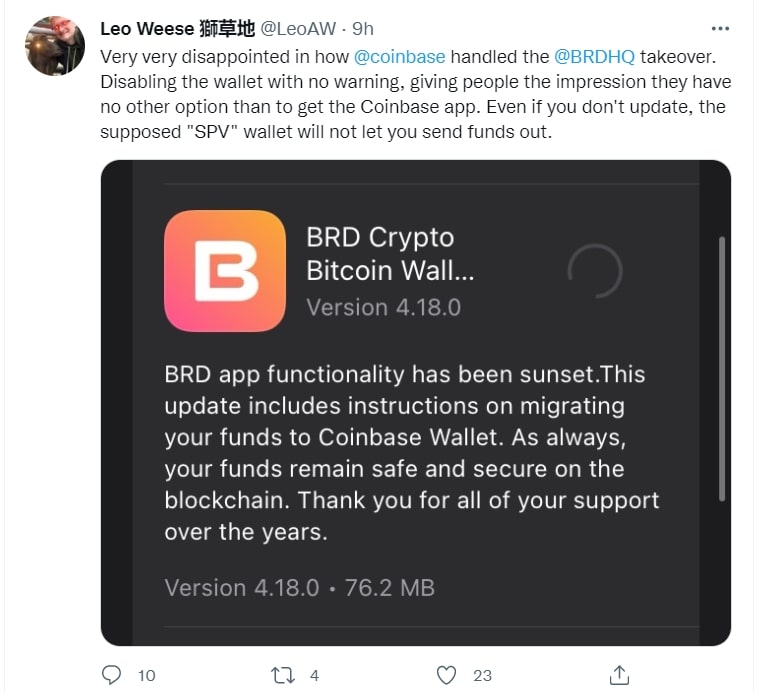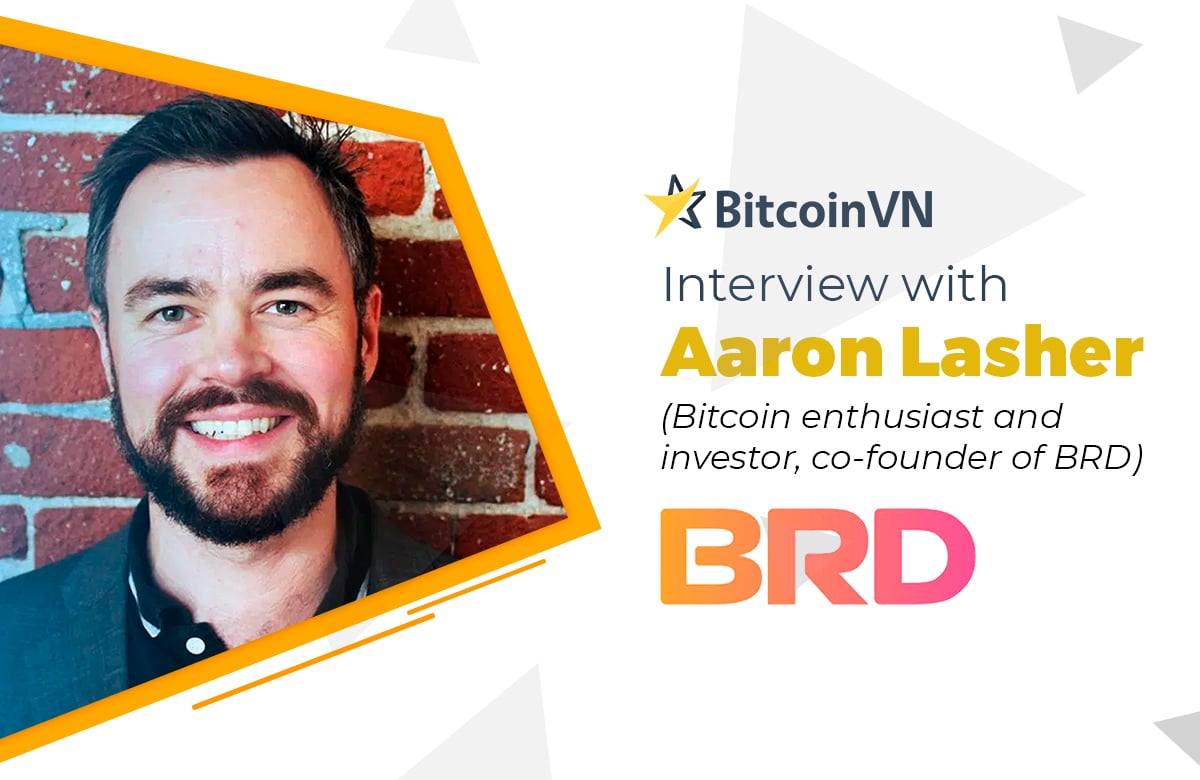BVN: Hi Aaron! Thank you for taking the time for us to respond to some of the questions for our readers! The usual starting question: When did you the first time hear about Bitcoin, what was your initial impression – and when did you decide to make a career out of it?
Aaron: Thanks, BV News Team! It’s a pleasure to speak with you. I first heard about Bitcoin in late 2011, after the first bubble from $2 to $32. My background is in math and cryptography, and after 2008 I took an interest in economics, which led me to align mainly with the Austrian school of thought, along with its advocating for sound money.
So in short, I was already primed to accept money that is limited in supply, and I wasn’t scared off by the word “crypto,” which is often psychologically conflated with “cryptic” – but Bitcoin of course is anything but mysterious.
BVN: In a recent interview you expressed sympathy towards raising the base layer Blocksize of the Bitcoin main chain. The scaling debate has certainly been the most controversial topic of the past decade; ultimately also leading to a split within the community.
Do you think after the outcome from 2017 that there will ever be any sufficient support to raise the Bitcoin Block Size? It seems that the majority of the Bitcoin community at this point is defending it with a similar vengeance like the 21,000,000 BTC limit and perceives a change in the block size as a slippery slope which puts the whole value proposition of a “reliable, ossified” protocol in danger.
Do you see the current ideas to scale Bitcoin as sufficient – or do you think without a Blocksize increase Bitcoin won’t be able to ultimately achieve its full potential?
Aaron: To start, I should make a disclaimer that these views are my own, and not BRD’s. That said, despite the tribalism that emerged from this debate, I try to remain practical. I don’t care much about which individuals or groups of people are supporting what initiatives. Rather, I like to take a first principle approach to form an opinion on how to predict success or failure.
And like many people, my opinions change over time as I gain new information and understanding. My opinion today is that the benefits of raising the Bitcoin block size vastly outweigh the detrimental effects of mining centralization. On the contrary, mining centralization is much more a function of access to chip fabricators, cheap power, and the total value of newly minted coins at stake – namely coin price.
All things equal, it would be better for users if transaction throughput were high and transaction fees were cheap, and so this is something we should strive for on the base layer if it doesn’t carry undue risk. With respect to the Lightning Network as a method to address this issue, I worry that the user experience is too poor in ways that cannot be easily improved (i.e. the most convenience lightning wallets offer a semi-custodial solution that makes me nervous about control over my funds), more specifically, that liquidity on the network is hamstrung by the “beads on a string” problem outlined by Peter Rizun, meaning that coins can easily move back and forth along a single channel but not between channels.
This requires more channels in general, and even with conservative estimates of how many people around the world might come to acquire bitcoin in the future, indicates that the 1 MB blocksize is woefully inadequate to accommodate just the channel openings alone, not to mention the ongoing organic transactions taking place on the network proper. So in summary, I love the design of the LN as a trustless IOU platform, but I am not yet convinced that it is structurally capable of accommodating a broad user base without an accompanying block size increase.
To answer your first question last, I believe if Bitcoin doesn’t raise its block size in some incremental but meaningful fashion, that Bitcoin Cash will surpass it in total market value, and eventually be crowned the “real” Bitcoin. To mitigate the risks of either scenario, I hold both coins. I don’t really care if I’m proven wrong in my analysis as long as either BTC or BCH succeeds.
BVN: When and how did you develop the idea to whensegwit.com and what was your motivation behind launching this initiative?
Aaron: In line with my thinking on improving network throughput, and in no small part because BRD is on the front lines of angry consumer feedback when fees are too high, it was important to us to do what we could to encourage our Bitcoin users to use native segwit (bech32) addresses.
But given our position in the market, we thought we could do more to urge similar companies to do the same. So we created a leader board to serve as both a reference point for users who want to use segwit as well as an incentive for other players in the industry to join the list. We didn’t want to shame anyone, so we decided to dangle a small carrot of recognition over the ecosystem.
BVN: Besides your activism in the scaling debate you are also Co-Founder of one of the most widely used Bitcoin wallets; BRD (which initially started out as “Breadwallet”). At the time of the creation of Breadwallet there were already a couple of mobile wallets on the market. What convinced you regardless of the existing solutions to launch Breadwallet at the time – and what’s in store for BRD in the future?
Aaron: Credit for that goes to Aaron Voisine. He built a wallet for the common person, whereas existing wallets were mostly built by techies for technies. I was an early user of BRD (breadwallet) and loved it so much that I became its first investor and board member. Since I was there so early, Aaron and Adam (CEO) call me a co-founder but I really just showed up early to the show.
Regarding the future, all I know is that Bitcoin and cryptocurrency is going to explode in popularity. I only hope that BRD can continue to be a leader and relevant part of that broader story. We’re working hard at it, and you’ll hear about some of the new exciting things we’ve been building throughout 2020.
BVN: Some people share the strong belief that the next major “battleground” for Bitcoin will be the adoption of more privacy enabling technology; either at protocol layer and/or via the application layer. As a wallet provider you are pretty much at the forefront of this evolving debate. What is your opinion on the matter?
Aaron: Personally, I’m a big fan of financial privacy. And it’s also in BRD’s DNA as one of the three core principles, along with Security and Simplicity. So yes, we are actively monitoring core protocol developments and seeing what we can do to assist at the application layer.
BVN: Overall – what are the things and developments in and around Bitcoin which make you most excited about the future looking ahead into the upcoming decade? Any specific topics which might also scare you / make you skeptical?
Aaron: I love to read the newsletter put out by our friends at Bitcoin Optech (https://bitcoinops.org) even if I sometimes struggle to keep up with some of the technical stuff. But they are the industry leader in communicating about and educating on initiatives around the protocol. So check them out if you haven’t already. Overall, I think Bitcoin is going to emerge as an essential financial lifeboat over the next decade for individuals, corporations, and (yes) even governments. As long as fiat currency is flawed, Bitcoin is on a path to major disruption, so notwithstanding the terrible fallout from hyperinflations and recessions, it’s going to be an interesting time to be alive.
Maybe something that scares me a little is the prospect that the US government could go full-blown anti-crypto at some point and I’d have to move my family somewhere outside the country. I don’t want it to come to that point.
*UPDATE 25.03.2022: Since the publication of this interview the ownership structure of BRD changed – and it is now part of Coinbase and has been put for “sunset”. As such we can no longer recommend the utilization of the wallet. – Source: https://twitter.com/LeoAW/status/1507119851927650311






















